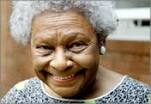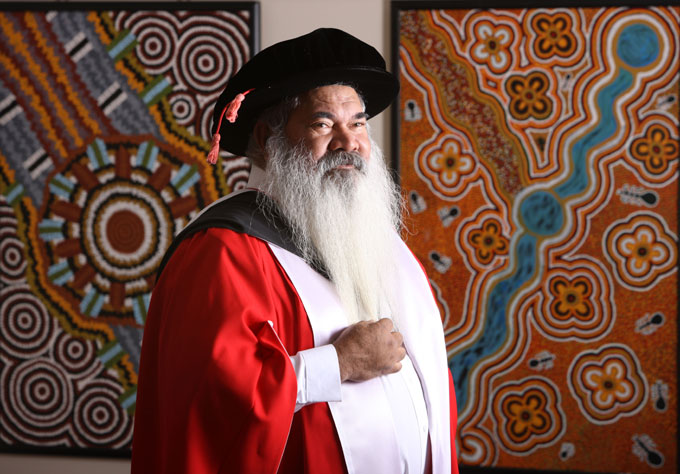TRIBUTE TO FAITH BANDLER: PATRICK DODSON

-
Faith Bandler, AC also known as Ida Lessing Faith Mussing, was an Australian civil rights activist of South Sea Islander heritage. She was a campaigner for the rights of Indigenous Australians and South Sea Islanders.
-
Born: September 27, 1918, New South Wales
-
On the occasion of this morning's state funeral (February 24, 2015) for Faith Bandler the Edmund Rice Centre requests your assistance in distributing this tribute to Ms Bandler - written by Patrick Dodson, Yawuru elder from Broome, WA.
In his inaugural address in Washington in 2008, the first American person of colour to assume the mantle of President of the United States, Barack Obama, challenged those who: “questioned the scale of our ambitions - who suggest that our system cannot tolerate too many big plans”. He challenged his countrymen and women to rise above mediocrity and imagine a world that was better for the accepting of the need for something better.
Well perhaps that newly elected leader of the United States had taken his cue from this beautiful Lady of diminutive stature who yet possessed the courage, dignity and vision equal to any of the giants of Australian history.
The scale of ambition that this dear Lady set for this nation half a century ago was to take the first steps towards righting the wrongs that had been a foundational flaw in the crafting of our Constitution sixty years previously – that most unacceptable of all exclusions that denied the humanity of those Australians on whose lands and seas the new nation of Australia had been constructed.
The story of the achievement of the 1967 Referendum will no doubt be recalled and recognized on many occasions today and that is a good and important thing to do. However the life we celebrate today was not defined solely from this one significant achievement.
Like the two other great Australians who lives we celebrated at State Memorial services in this city in past months the achievements of this lady were many and across the spectrum of the time in which she lived.
Hers was a life of activism in Australia, whether for equal wages for Aboriginal workers, the rights of those who had been stolen into slavery from the islands of her father or the recognition of Indigenous people in the Constitution of the nation. For this Lady injustice was not defined by colour nor creed, nor racial origin. Injustice for her was simply unacceptable and when identified could not be tolerated or left in place to fester and corrupt the soul of the nation.
Her activism was strategic and relied on building alliances and supporters through the strength of her personality and the belief that she had in the rightness of her cause.
We met at her home in Sydney in early 1996 when I had gone to speak to her about playing a role in the Reconciliation Convention that was to be held in Melbourne the following year.
She and Hans were the most gracious of hosts and the afternoon and early evening were spent, not reminiscing about 1967 or even of our plans for the Melbourne Convention but the work that that was still required on so many fronts that when resolved would ultimately lead to a more just and equitable Australia which in her mind was a work in progress with much work still to be done. We left that evening with her acquiescence to participate in Melbourne but with instructions for us on other causes and matters of injustice that required our attention and resources.
Having agreed to participate in Melbourne she immediately assumed control of that part of the weeks planned events and the Reconciliation Council found itself with a branch in French’s Forrest.
The recognition of this dear Lady and her team who were recognized at the Convention the following year was the highlight of the weeks celebrations and it was evident from the deference that was paid to her by her fellow workers and partners from the Federal Council for the Advancement of Aboriginal and Torres Strait Islanders (FCAATSI) that the dear Lady was still the General Secretary and still in charge.
But the lesson for us all in the life of this National Treasure is that injustice is not situational, nor finite. Our responsibility to confront injustice wherever it exists and to seek immediate remedy and restitution has no finishing line. The fight against injustice is a race never completed and there is no pretence that will allow us to ignore its reality.
This dear Lady was confronted with the reality of injustice from the day of her birth and fought against its tide for her entire life.
Her message of justice and humanity will not disappear with her passing into the spirit of the land and waters of her country where she travels today but will have its echo in hearts of future generations. PATRICK DODSON23rd February 2015
PATRICK DODSON23rd February 2015